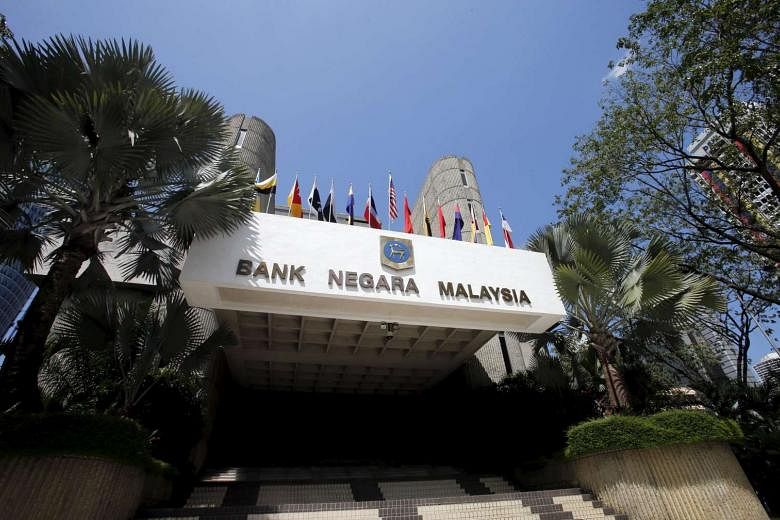DUBAI (BLOOMBERG) - The Malaysian ringgit remains "significantly undervalued" and risks to economic expansion are unlikely to materialize with exports still strong, central bank governor Zeti Akhtar Aziz said.
The ringgit doesn't reflect fundamentals with the nation's current account in surplus, unemployment at about 3 per cent and inflation within Malaysia's long-term average, Ms Zeti said in an interview in Kuwait City on Wednesday (Nov 11). The currency may recover when the US Federal Reserve normalizes interest rates and as "domestic issues" in Malaysia are resolved, she said.
Malaysian policy makers have been struggling to boost confidence in its economy and finances since oil prices started to fall last year and as allegations of financial irregularities at a state investment company hurt sentiment. While the ringgit recovered alongside emerging market currencies in October, it's still down about 20 per cent this year, the worst performer in the Asia Pacific region.
"Our export growth remains fairly strong, it has not moderated to the extent that we expected," Ms Zeti said. Malaysian exports and industrial production beat economists' estimates in September.
On expectations of a Fed rate increase, "investors have already anticipated this and have already priced it in, so we have already seen, we believe, most of the outflows," she said.
Global funds have pulled RM17.4 billion (S$24.65 billion) from Malaysian equities and RM16.2 billion from debt in 2015. Still, sentiment may be changing with MIDF Amanah Investment Bank saying foreign funds were net buyers of Malaysian stocks for four of the last five weeks, while central bank data showed global investors raised holdings of Malaysian debt for a second month in October.
"We believe investors, after they reassess their investment portfolios, will still gravitate toward growth areas and we are one of those growth areas," Ms Zeti said.
"When all this is resolved, we believe that the currency will reflect the fundamentals," she said, citing rate differentials with the U.S. and the perception Malaysia is primarily an oil producer - even as 80 per cent of its economy is manufacturing- and services- based - among factors that are affecting the ringgit.
The central bank left rates unchanged for an eighth meeting this month, even as Malaysia's biggest trading partners of China and Singapore both eased monetary policy in recent weeks. While Ms Zeti said officials have priced in the slowdown in China, Trade Minister Mustapa Mohamed said last week easing growth in the North Asian nation and the impact on orders for Malaysian goods means the government won't be able to meet its trade targets this year.
Gross domestic product probably increased 4.7 per cent last quarter from a year earlier after expanding 4.9 per cent in the three months through June, according to the median estimate in a Bloomberg News survey of economists before data due Friday. At that rate, it would be the slowest in more than two years.

